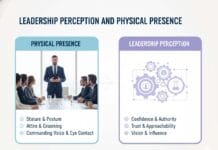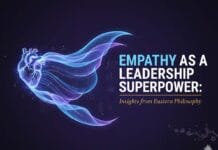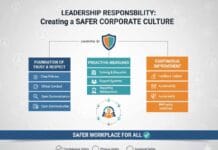The world of work is evolving at an unprecedented pace. New technologies, shifting economic landscapes, and changing societal expectations mean that career paths today are more fluid. What was once considered a stable job might no longer be viable. For those seeking to build a future-proof career, it’s essential to understand the trends shaping the workforce and how to adapt. In this article, we’ll explore the insights from industry leaders on how to create a career that will stand the test of time.
The Importance of Adaptability
Industry leaders emphasize adaptability as a key factor in career longevity. Rapid advancements in technology are transforming industries in today’s fast-paced world. Roles that were once in demand may soon be obsolete, and new professions are emerging. Developing skills that can be applied across different fields is crucial to stay relevant.
Adaptability means being open to learning new skills, embracing change, and stepping out of your comfort zone. Industry leaders agree that people who are curious and willing to reskill regularly will be better positioned for success in the future. This doesn’t necessarily mean changing careers entirely but being ready to pivot when necessary.
A future-proof career involves constantly reassessing your strengths and areas for growth. Consider how your current skills can transfer to different industries, or how you can build upon them to meet new demands. Embrace the mindset of lifelong learning and stay prepared for changes in the workforce.
Building a Network for Career Growth
While skills and adaptability are vital, no career can thrive without a solid professional network. Industry leaders stress the importance of cultivating meaningful relationships that can open doors to new opportunities. Networking is not just about making connections for job searches; it’s about learning from others, sharing knowledge, and growing together in your field.
In today’s interconnected world, networking goes beyond attending industry events or job fairs. Social media platforms like LinkedIn and Twitter and industry-specific forums have become vital tools for building a network. Being active on these platforms allows you to engage with thought leaders, follow trends, and collaborate on projects.
However, it’s not just about the number of connections you make—it’s about quality. Industry experts suggest a personalized approach to networking, where you focus on building relationships that align with your values and career goals. Meaningful conversations, providing value to others, and staying consistent in your interactions will strengthen your network.
Resumes and Cover Letters: Still Relevant in the Digital Age?
In an increasingly digital world, one might assume that traditional job-searching tools like resumes and cover letters have lost their relevance. However, industry leaders argue that these documents are still essential for building a successful career, particularly when it comes to job applications.
A resume is often the first point of contact between you and a potential employer. It is a snapshot of your professional journey, highlighting your experience, skills, and qualifications. But it’s no longer enough to list your achievements; your resume must be tailored to each job opportunity, showing how your background aligns with the company’s needs and values.
Similarly, a cover letter allows you to personalize your application further, showcasing your enthusiasm for the position and demonstrating why you are the best fit. It’s an opportunity to provide context to the resume and offer insight into your personality and work ethic.
With the Zety cover letter builder, crafting a standout cover letter becomes easier and more efficient. These tools can help you structure your letter, ensuring it is professional and compelling. When used effectively, a well-crafted resume and cover letter can help you land that all-important first interview.
The Power of Personal Branding
A strong personal brand has become an essential asset in today’s job market. Whether you’re an entrepreneur or an employee, having a clear and consistent message about who you are and what you stand for can help you stand out from the competition. Industry leaders highlight that personal branding isn’t just about self-promotion; it’s about demonstrating your unique value proposition and expertise.
Personal branding starts with understanding your strengths, passions, and the unique perspective you bring to your work. From there, you can develop an online presence that showcases your skills, accomplishments, and experiences. This could include writing articles, sharing industry insights, or engaging in relevant discussions on social media.
Building a personal brand can take time, but consistency is key. By regularly updating your portfolio, maintaining an active online presence, and being clear about your professional goals, you’ll establish yourself as an authority in your field.
Embracing Technological Tools and Innovation
As technology plays a larger role in shaping the workforce, embracing technological tools is another crucial strategy for building a future-proof career. Industry leaders agree that staying ahead of technological trends is necessary to remain competitive in the job market.
For instance, familiarity with artificial intelligence (AI), data analytics, or blockchain technology can set you apart from other candidates. Even if you don’t work directly in a tech-related field, understanding how technology reshapes industries and job functions can help you anticipate changes and adapt accordingly.
Numerous online resources, courses, and certifications can help you learn new technologies or enhance your existing skillset. Industry leaders suggest that professionals regularly assess how technological advancements impact their industries and identify areas where they can gain expertise.
Soft Skills: The Secret to Career Longevity
While technical skills are essential, soft skills are often the differentiating factor between candidates with similar qualifications. Industry leaders often emphasize the importance of emotional intelligence, communication, problem-solving, and collaboration. These skills are difficult to teach but highly valuable in any workplace.
For example, communicating effectively in writing and verbally can improve your relationships with colleagues and clients, leading to better teamwork and overall success. Similarly, emotional intelligence allows you to navigate complex workplace dynamics and manage stress, making you a more resilient and adaptable employee.
Investing in your soft skills can be as important as improving your technical abilities. Many professionals focus on developing their leadership skills, learning to manage teams, and honing their decision-making abilities. These skills will make you more effective in your current role and prepare you for future opportunities in leadership.
Conclusion
Building a future-proof career requires more than staying current with the latest trends—it’s about creating a mindset that values adaptability, continuous learning, and resilience. By embracing new technologies, expanding your network, and honing hard and soft skills, you can ensure your place in the workforce for years.
Ultimately, the most successful professionals will remain open to change, take advantage of emerging opportunities, and continue to build a personal brand that reflects their evolving career journey. The key is to stay proactive, focus on long-term growth, and embrace the challenges of building a future-proof career.





